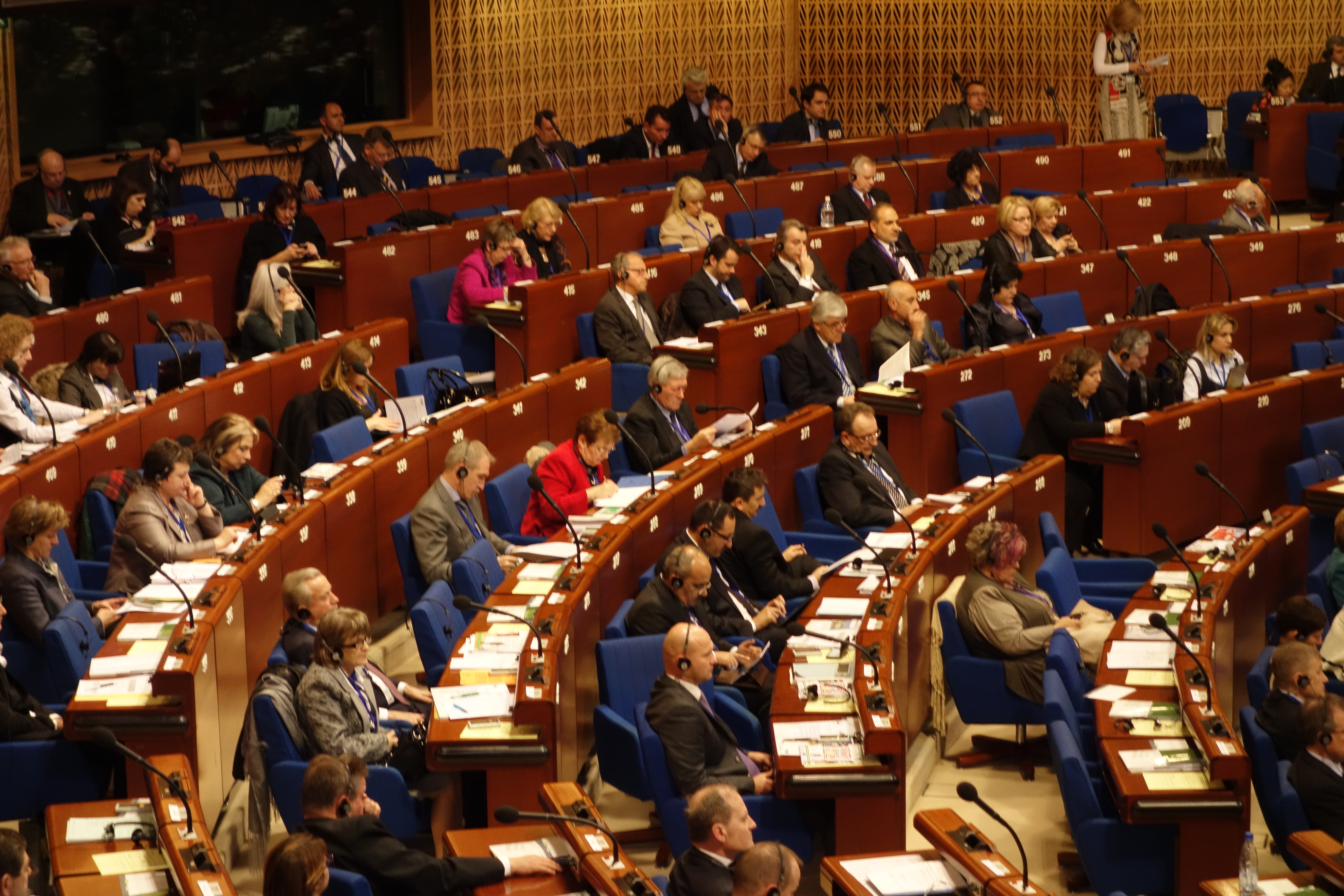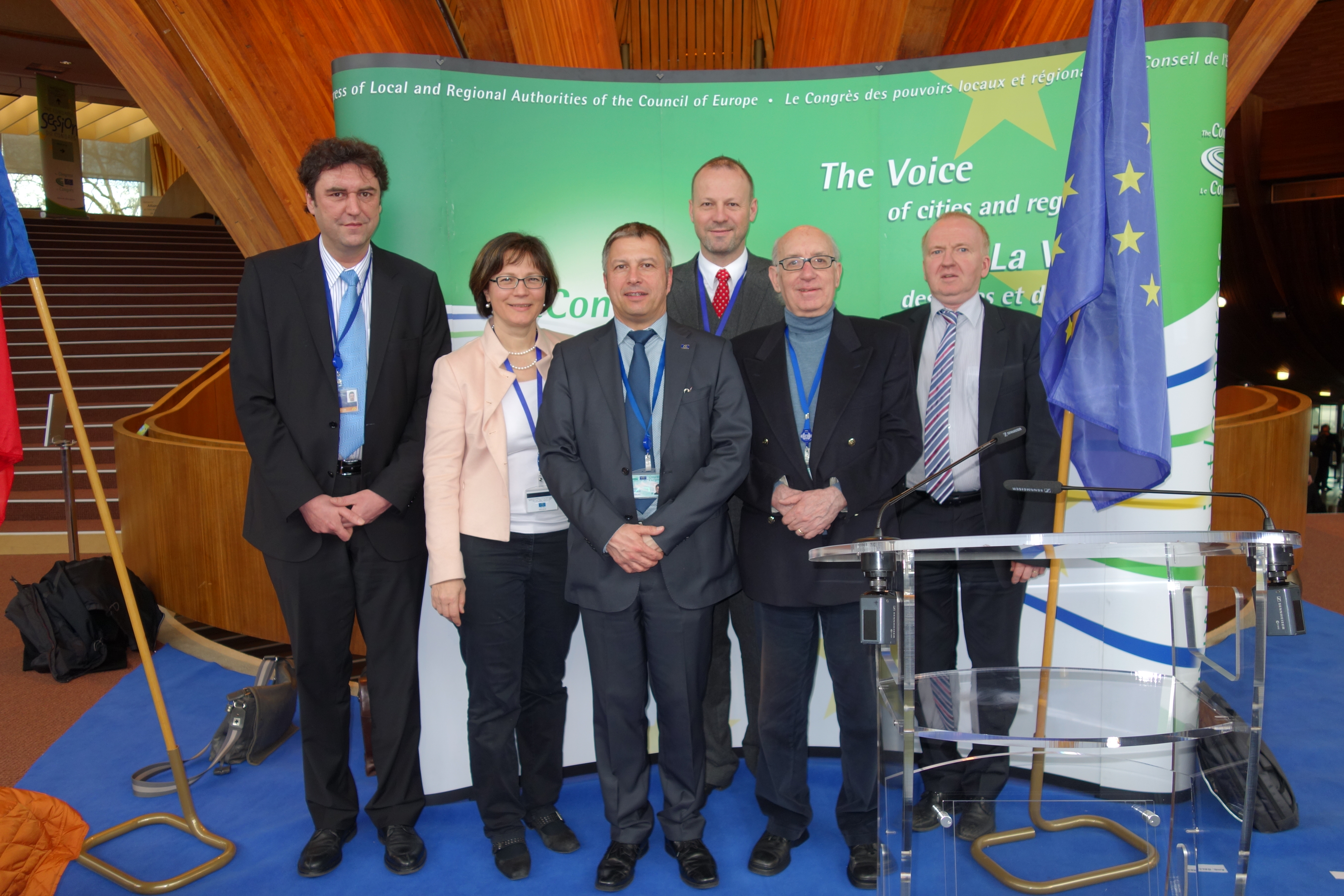European watchdog is Swiss ʻto the coreʼ

The Council of Europe is a moral instance, a place for dialogue for the 47 member states. Law professor Daniel Thürer describes the institution in Strasbourg as a pluralistic and federalist construct – a kind of Switzerland “in miniature”.
Thürer, who teaches international law, European law and constitutional law at the University of Zurich, has been a member of the council’s Commission against Racism and Intolerance for the past ten years.
Unlike the European Union, the council does not usually pass binding resolutions but only gives recommendations.
The European Commission against Racism and Intolerance for example has published recommendations for the protection of the Roma, against anti-Semitism, anti-Islamism, against racism in the media, in sport or cyberspace. But while they are non-binding, they can have a strong political or psychological impact according to Thürer.
swissinfo.ch: Switzerland has been a member of the Council of Europe for 50 years. What would have happened, had it not joined?
Daniel Thürer: That would not have been positive. I think Switzerland joined far too late in 1963, 14 years after inception of the council. We remained fixated on isolationism and neutrality for a long time after the Second World War, despite the fact that the council had nothing to do with military issues. In hindsight we can say that we were lucky to join it after all.

More
Strasbourg puts experience in perspective
swissinfo.ch: How has Switzerland benefited from its membership?
D.T.: Perhaps, we should not just focus on utilitarian considerations. We always consider how something benefitted us. Already when we joined the UN, people wanted to know about the benefits.
I think Europe is in a new political state, it is a way of life. It seems natural for me that we belong to it – without any utilitarian considerations.
One could say that the council is actually Swiss to the core, in the sense that the concept of federalism is actually better preserved than in the European Union, whose aspiration is unification.
The council is a pluralistic, multilingual construct, where legal concepts play a major role – just like in Switzerland.
The Swiss have a lot to say in Strasbourg, particularly because of their multilingualism; There are few Europeans who can readily understand and speak French, English and Italian.
swissinfo.ch: So Switzerland is a role model?
D.T.: That would seem arrogant. Perhaps you could say that it is one possible model. There were always people in the wake of the Second World War – I’m thinking for example of the Swiss author and philosopher Denis de Rougemont– who said Europe should be more Swiss.
I do not mean to say this with any moral connotation, but the way Switzerland has grown together historically and sociologically is being repeated now within Europe.
swissinfo.ch: Switzerland is proud of its democracy, but it has also already been reprimanded by Strasbourg. So perhaps it is not a role model after all?
D.T.: Switzerland had to make various adjustments, mainly because it is a party to the European Convention on Human Rights (ECHR), which it joined at a relatively late stage. It only wanted to do so once it had eliminated gross violations against the ECHR.
The main issues were women’s right to vote, which had not been adopted in every canton, and constitutional articles like the banishment of Jesuits. The article against the construction of minarets and the deportation initiative have also been criticised by the council.
In 2013, Switzerland celebrates the 50th anniversary of its membership in the Council of Europe (COE).
It joined on May 6, 1963 as its 17th member.
Today, the COE, based in Strasbourg, France, has 47 member states with a combined population of more than 800 million.
Switzerland is present in the Parliamentarian Assembly of the Council of Europe with six members and their six alternates, and in the Congress of Local and Regional Authorities with six representatives of municipalities, cities and cantons and their six alternates. In addition, Switzerland – like every other member country – provides one judge for the European Court of Human Rights.
swissinfo.ch: Is Switzerland’s influence in the Council of Europe greater than what its size would suggest?
D.T.: It’s very Swiss to say that we are a small state with little significance. If you look at Europe, however, you will see that Switzerland is not a small state. In terms of population, it is medium-sized and, considering its economic weight, even an important state.
Switzerland is not being ignored. As for the rest, it’s influence is difficult to measure; it depends on the institutions and individual personalities exerting their influence. I’m an independent member of the Commission against Racism and Intolerance; I don’t represent Switzerland and I don’t get instructions from Bern.
When I travel for the council, I have been able to note time and again that Switzerland is well received. We have plenty of credibility. Perhaps it’s the matter-of-fact manner many Swiss display, a certain openness, but also our restraint. It is in line with our political tradition that we listen first and that we don’t travel to a country on a mission. This is certainly an advantage and possibly has something to do with Swiss democracy.
swissinfo.ch: Switzerland is not part of the EU. Does council membership therefore have a particular significance?
D.T.: I believe so. It does not seem likely that Switzerland will join the EU any time soon, despite the fact that it is as a country, as a society, profoundly integrated in Europe. That is exactly why Switzerland’s membership of other organisations like the council or the Organisation for Economic Co-operation and Development is particularly important.
Switzerland can also contribute quite a bit to European integration. I believe Europe will have to massively change its structures and mind-set over the next few decades. We need to stress the importance of citizens and political rights. We need to go back to a Europe where citizens and states play an important role.
It should be like in Switzerland where the citizens participate in decisions, a tradition that does not exist anywhere in Europe or the world in this form. My understanding of fundamental rights is that political rights, civil rights are part of the human rights.
The ECRI was established in 1993 in Vienna and became operational in 1994. Its task is to fight racism, anti-Semitism, xenophobia and intolerance. It observes human rights and formulates recommendations.
Every state in the Council of Europe delegates one member in the ECRI. Daniel Thürer has been a member since 2004. Thürer also works for various institutions including the ICRC or the international Court of Arbitration in De Hague.
(Translated from German by Chantal Britt)

In compliance with the JTI standards
More: SWI swissinfo.ch certified by the Journalism Trust Initiative
You can find an overview of ongoing debates with our journalists here. Please join us!
If you want to start a conversation about a topic raised in this article or want to report factual errors, email us at english@swissinfo.ch.